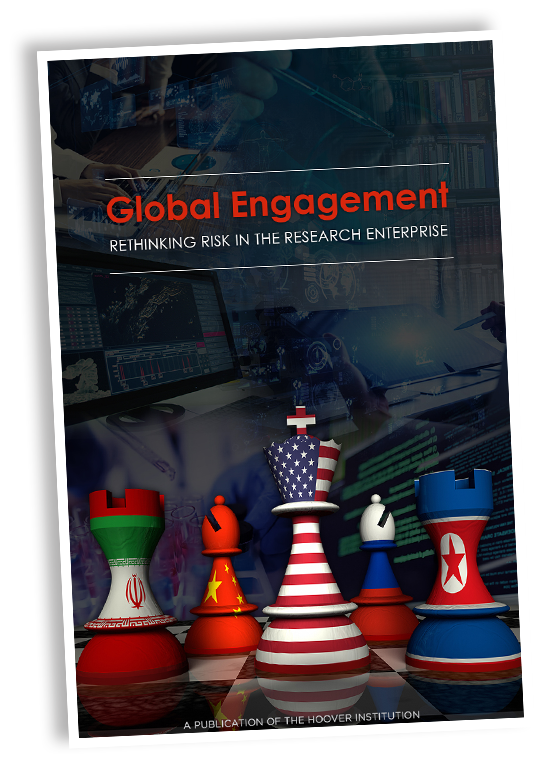
ASCE was established to tap the expertise of university security, compliance, export control, and cybersecurity personnel to help address the threat foreign adversaries pose to U.S. institutions of higher learning. In coordination with a number of federal partners, ASCE’s mission is to increase awareness and provide the tools for countering foreign influence in our colleges and universities. Learn more ...
ABOUT
Team Effort
Connections
Global Engagement: Rethinking Risk In The Research Enterprise
Neither the US government nor the universities and national laboratories in the US research enterprise are adequately managing the risks posed by research engagements with foreign entities. The task is quite simply falling through the cracks. Data with which to assess the performance of current frameworks for managing foreign engagement risk, to identify their defects, and to devise proportionate fixes is consequently in short supply. Dueling narratives have filled this evidentiary vacuum, pitting some who propose incremental adjustments against others who call for far-reaching change. Without a common set of facts to anchor the debate, consensus has proven elusive.
This report offers a way forward. Chapter 1 identifies more than 250 published research collaborations between scholars based in the United States and counterparts from seven universities in the People’s Republic of China (PRC) that are integral to that nation’s defense research and industrial base. This report maintains that it is not in the US national interest to collaborate and assist with the military development efforts of the PRC, a nation that the US government increasingly views as a strategic competitor and military rival, even if the relevant research is unclassified, considered basic or fundamental, and is ultimately published in open sources.1 Such collaborations are emblematic of systemic flaws in the ways that the US research community approaches foreign engagement risk. To remedy those flaws, the research community should embrace a new, proactive risk assessment and management paradigm informed by the principles of Operational Security (OPSEC) and implemented through capability maturity modeling. Chapter 2 delivers that paradigm.
Read the full report here.
Watch the webiner here.


